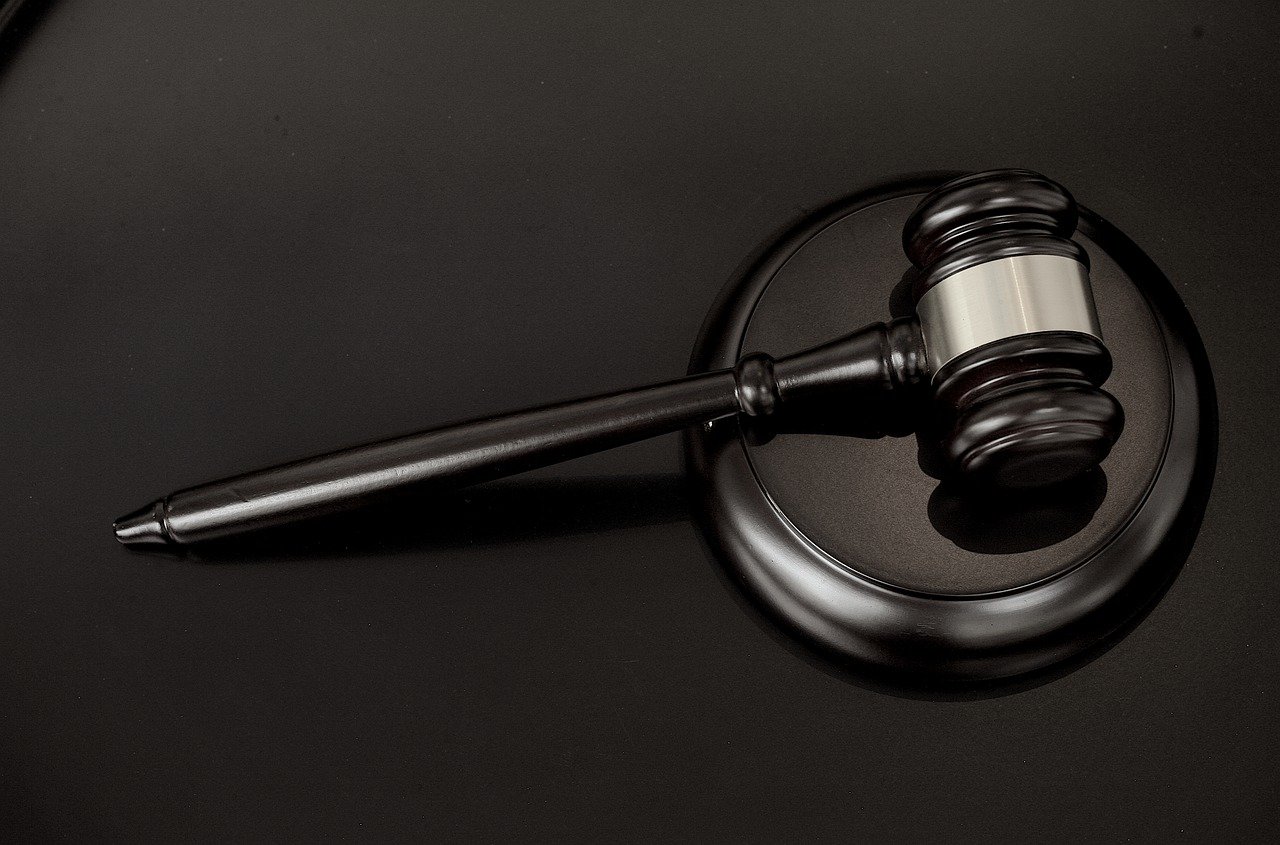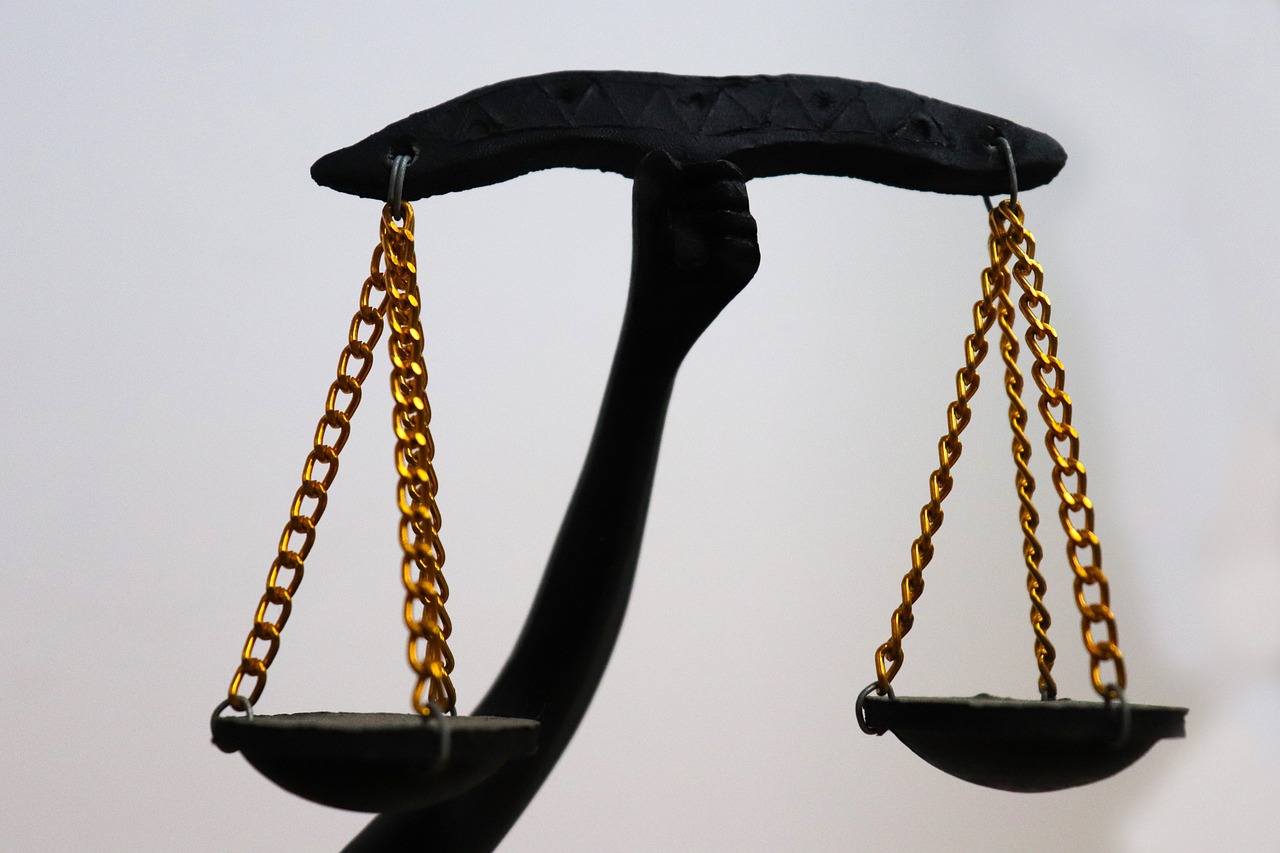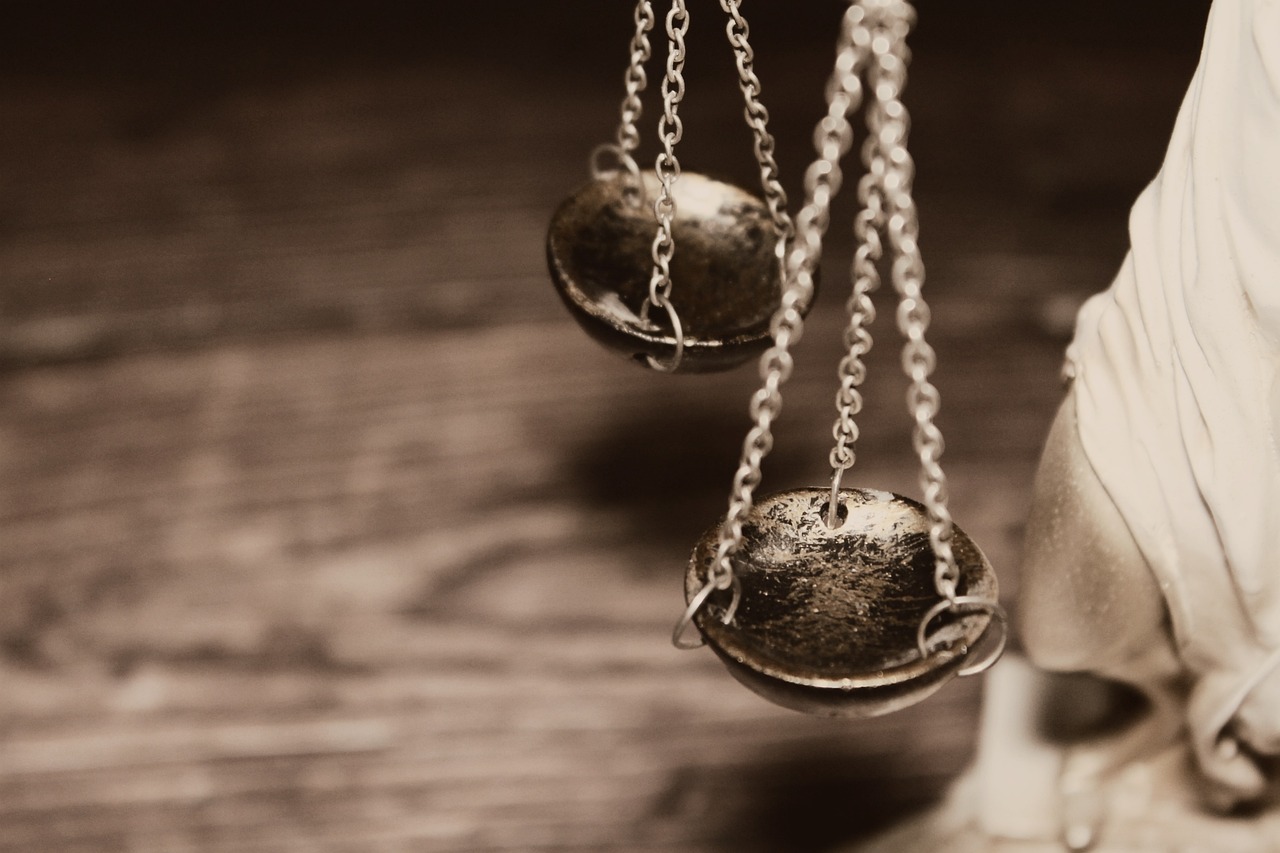
Zero Tolerance for Law Firm Malpractice
Law Firm Mal Practice” podcast delves into the intricate realm of legal ethics, examining cases of professional misconduct and negligence within law firms. Each episode dissects real-life scenarios, from breaches of client trust to mismanagement of cases, offering in-depth analysis and insights into the complexities of legal malpractice.
Hosted by seasoned legal experts and industry insiders, the podcast navigates through the nuances of ethical dilemmas, regulatory frameworks, and the consequences of malpractice. Whether you’re a legal professional, student, or simply intrigued by the legal world, “Law Firm Mal Practice” provides compelling narratives and valuable lessons on maintaining integrity and accountability in the legal profession.


Years of service


news and event
Stay updated on current affairs and happenings with our comprehensive coverage of news and events from around the world.
When it comes to dealing with Court representation for traffic offenses in Bronx, navigating the legal system can be daunting for many drivers. Whether it’s a speeding ticket, a red-light violation, or more serious charges like driving under the influence (DUI), court representation is crucial. Hiring an experienced traffic lawyer can greatly influence the outcome of your case, ensuring your rights are protected and helping you avoid unnecessary penalties. This article will delve into the importance of court representation for traffic offenses in the Bronx and why seeking legal assistance can be beneficial.
Traffic offenses in the Bronx are subject to strict regulations, and the penalties can be severe, including fines, points on your driver’s license, increased insurance premiums, or even suspension of your license. In many cases, individuals may be unaware of the full extent of their rights or the legal implications of their charges. This is where professional court representation comes into play. A skilled Bronx traffic attorney can guide you through the complexities of traffic laws, helping you understand the charges, potential consequences, and the best course of action to take.
In the Bronx, traffic court cases are typically handled by the Bronx Traffic Violations Bureau (TVB), which is part of the New York City Traffic Court system. If you receive a traffic ticket, the process begins with either paying the fine or contesting the ticket in court. While paying the fine may seem like the simplest option, contesting the ticket with proper court representation can often result in reduced penalties or even the dismissal of the case. A traffic lawyer with experience in Bronx traffic law can negotiate on your behalf, present a strong defense, and potentially secure a more favorable outcome.
One of the primary reasons to hire an attorney for court representation in the Bronx is the expertise they bring to the table. Traffic lawyers understand the ins and outs of local traffic laws, court procedures, and how to deal with specific offenses in the Bronx. They can assess the evidence, examine the circumstances surrounding the offense, and challenge the validity of the ticket or citation. Whether the offense involves a technical violation or a misunderstanding, a traffic attorney can help you build a defense strategy that minimizes the impact on your driving record and overall future.
For many Bronx residents, a traffic violation may not seem like a serious matter at first. However, even seemingly minor offenses can escalate into significant legal issues. Accumulating points on your driving record can lead to a suspended license, which can affect your ability to work, commute, or even attend school. In some cases, traffic offenses may also involve criminal charges, such as reckless driving or DUI. Having court representation ensures that you have someone who knows how to handle both the legal and personal aspects of your case.
When seeking court representation for traffic offenses in the Bronx, it’s important to choose a lawyer who specializes in traffic violations. Not all attorneys have the necessary expertise in this area of law, so it’s essential to hire someone who has a deep understanding of the nuances involved. A specialized lawyer can advise you on whether it’s worth contesting the ticket, help you prepare for court, and ultimately give you the best chance of reducing or eliminating the penalties associated with the violation.
Another crucial aspect of court representation in the Bronx is the potential for negotiation. Experienced traffic lawyers are skilled negotiators who can work with the prosecutor or judge to secure a more favorable outcome. For example, they may be able to have the charges reduced to a less serious offense, which would result in fewer penalties. Additionally, they may be able to secure a plea bargain or request alternative penalties, such as traffic school, rather than a hefty fine or points on your license.
Understanding the legal consequences of a traffic offense is also essential for Bronx drivers. Depending on the offense, you could face a variety of penalties that could have long-term effects on your driving privileges and insurance rates. For example, accumulating a certain number of points on your license could lead to the suspension of your driving privileges. A traffic attorney can help you understand the full implications of your case and help you avoid unnecessary penalties.
The court process itself can be time-consuming, especially for drivers who are unfamiliar with the Bronx legal system. Attending court hearings, filling out legal paperwork, and presenting your case can be overwhelming. An experienced attorney will handle all of this on your behalf, ensuring that all deadlines are met and that your case is presented in the best possible light. Their expertise can save you valuable time and stress, allowing you to focus on other aspects of your life.
Court representation for traffic offenses in the Bronx is not just about contesting tickets; it’s about protecting your driving record, rights, and future. With the right attorney, you can ensure that you are treated fairly in court, reduce the likelihood of penalties, and secure the best possible outcome for your case. Even if you feel that the offense was minor, the long-term consequences of a traffic violation can be significant. A skilled traffic lawyer can minimize the impact of the offense, preserve your driving privileges, and help you avoid the financial burden of higher insurance premiums or fines.
In conclusion, court representation for traffic offenses in the Bronx is a crucial step for anyone facing a traffic violation. Whether you’re dealing with a simple ticket or more serious charges, an experienced traffic lawyer can provide valuable guidance and representation. From negotiating reduced penalties to ensuring that your case is heard fairly, having a professional advocate in your corner can make all the difference in the outcome of your case. If you’re facing a traffic offense in the Bronx, don’t hesitate to seek legal advice and representation to protect your rights and future.
The legal procedure for truck accident cases generally involves extensive evaluations and event of proof, followed by settlements with the insurance companies representing the liable events. If a sensible arrangement can not be gotten to with negotiations, the case may continue to claims. The ideal Moseley Collins Law Sacramento tractor-trailer accident attorneys will have the proficiency to browse the complexities of these circumstances and defend the compensation that victims deserve. This compensation might cover a wide range of problems, consisting of medical costs (existing and future), lost wages, loss of earning capability, property issues, and discomfort and suffering.
Family Values
Moseley Collins Law Sacramento’s team of lawyers understands that family is the foundation for a happy life. Their firm focuses on the needs of injured California families and strives to provide a new hope for their clients.
The underlying causes of truck accidents can be far more complicated than standard car wrecks, and determining liability requires in-depth expertise. Often, trucking firms and insurance providers will try to disclaim responsibility or offer victims lowball settlement offers.
To level the playing field, it is important to work with a Sacramento truck accident attorney who has experience in handling these cases. A knowledgeable lawyer can navigate the authorized complexities and collect needed proof to support a fair negotiation with these large firms and their insurers. Typical settlement problems may include financial damages for medical costs (present and future), lost wages, property damage, loss of consortium, and pain and suffering. In some instances, punitive damages are also available to punish the wrongdoer and deter similar behavior in the future.
Passion for Justice
Our law firm is committed to fighting for our clients’ rights. We believe in fairness and justice and do not want anyone to be treated unfairly by any government agency or corporation. We are passionate about our fight for justice and will not stop until we see that all of our clients have the legal representation they deserve.
A Sacramento car accident lawyer has an in-depth understanding of local traffic laws, insurance regulations, and court procedures. This allows them to build a strong legal case for their clients. In addition, they can help their clients navigate the intricacies of personal injury claims.
Moseley Collins is also involved in numerous community outreach programs such as volunteering at Feed My Starving Children, supporting Sierra Pregnancy and Health Gala, and sponsoring MADD events. He believes that it is his duty to glorify God with his work, which he does by serving the needs of the community. He continues to learn eagerly and take classes when he can so that he can provide his clients with the best possible legal service.
Experienced Legal Representation
As a leading firm with decades of experience, our Sacramento truck accident lawyers have helped clients pursue full restorative compensation. We have secured millions in settlements, including 8-figure results in wrongful death and catastrophic injury cases.
Due to their sheer size and weight, trucks pose a serious danger to others sharing California’s roads and highways. When a negligent truck driver or trucking company breaches their legal duty to operate these massive machines without endangering people traveling behind them, victims and families must seek justice and compensation.
Due to the complexities of these claims, retaining an aggressive truck accident lawyer can significantly increase the odds of fair settlement outcomes. A specialized attorney can help navigate the complexities of these claims, from identifying potentially responsible parties like the lorry drivers, trucking companies, and equipment manufacturers to collecting essential evidence like black box data from trucks that record critical operational details before crashes; securing expert witnesses, and more.
Expert Witnesses
When a trucking company or a truck driver breaches their legal duties and causes catastrophic truck collisions in Sacramento, families and their loved ones need the help of knowledgeable attorneys to understand exactly what happened. From recreating crash scenes and analyzing maintenance logs to evaluating the impact of driver actions, expert witnesses are invaluable tools in truck accident cases.
These professionals offer valuable opinions based on their extensive training and professional experience. They can also clarify complex technical, medical and regulatory details so that a jury can grasp them. This helps strengthen a plaintiff’s claim for compensation.
“Moseley Collins Law
980 9th St.
Sacramento, CA 95814
916-444-4444”
The legal profession stands as a bastion of justice and integrity, with attorneys entrusted to uphold the rule of law and protect their clients’ interests. However, amidst the complexities of legal practice, instances of malpractice can arise, casting shadows over the profession’s ethical standards. Law firm malpractice, characterized by negligent or unethical conduct, not only jeopardizes client trust but also undermines the foundations of the legal system. This article ventures into the intricate terrain of law firm malpractice, examining its root causes, far-reaching consequences, and the imperative need for preventive measures.
Understanding Law Firm Malpractice:
Law firm malpractice encompasses a spectrum of behaviors by legal practitioners that breach professional standards and result in harm or loss to clients. These behaviors may include:
1. Breach of Fiduciary Duty: Attorneys owe a fiduciary duty to act in the best interests of their clients. Breaching this duty through conflicts of interest, self-serving actions, or neglecting client welfare constitutes malpractice.
2. Incompetence or Negligence: Failure to perform legal duties with the requisite competence and diligence can lead to malpractice claims. This may involve inadequate legal research, missed deadlines, or substandard representation, resulting in adverse outcomes for clients.
3. Misrepresentation or Fraud: Deliberate misrepresentation of facts, fabrication of evidence, or misleading statements by attorneys can constitute malpractice, undermining the integrity of the legal process and causing harm to clients and other parties involved.
4. Conflict of Interest: Law firms must navigate complex ethical boundaries to avoid conflicts of interest that compromise their ability to represent clients effectively. Failure to disclose conflicts or representing conflicting interests can lead to malpractice allegations.
Consequences of Law Firm Malpractice:
The consequences of law firm malpractice reverberate across multiple dimensions, affecting clients, legal practitioners, and the broader legal community. For clients, malpractice can result in financial losses, adverse legal outcomes, and profound emotional distress. Trust in the legal system may erode, leading to skepticism and reluctance to seek legal assistance in the future.
Moreover, law firm malpractice tarnishes the reputation of the entire legal profession. Instances of malpractice undermine public confidence in the integrity and ethics of attorneys, potentially deterring individuals from seeking justice through legal channels. This erosion of trust not only impacts the malpracticing firm but also has cascading effects throughout the legal community.
Legal practitioners implicated in malpractice face professional and personal repercussions. In addition to potential disciplinary actions by state bar associations, such as license suspension or revocation, lawyers may experience irreparable damage to their professional reputation. Rebuilding trust and credibility after being associated with malpractice can be a daunting endeavor, impacting career trajectories and personal well-being.
Prevention Strategies:
Preventing law firm malpractice demands a proactive and comprehensive approach, encompassing ethical standards, risk management protocols, and ongoing professional development. Here are some strategies to mitigate the risk of malpractice:
1. Adherence to Ethical Guidelines: Law firms must prioritize adherence to the highest ethical standards, including integrity, honesty, and client confidentiality. Establishing clear ethical guidelines and providing regular training and oversight can help ensure compliance and prevent inadvertent violations.
2. Competence and Due Diligence: Attorneys must maintain competence in their respective areas of practice and exercise due diligence in representing clients. This includes staying abreast of legal developments, conducting thorough research, and seeking assistance or collaboration when facing unfamiliar or complex matters.
3. Conflict Checking Mechanisms: Implementing robust conflict checking mechanisms is essential to identifying and addressing conflicts of interest promptly. Utilizing technology solutions and maintaining comprehensive conflict databases can help law firms navigate ethical dilemmas and avoid malpractice allegations.
4. Communication and Transparency: Open communication with clients regarding case developments, potential risks, and legal strategies fosters trust and reduces the likelihood of misunderstandings or disputes. Lawyers should provide clear and transparent explanations of legal processes and decisions, empowering clients to make informed choices.
5. Continuous Improvement: Embracing a culture of continuous improvement enables law firms to adapt to evolving legal landscapes and emerging risks. Regularly reviewing and updating internal policies, procedures, and training programs ensures that attorneys remain vigilant against malpractice pitfalls.
Conclusion:
Law firm malpractice poses significant challenges to the legal profession, threatening client trust, professional integrity, and the credibility of the legal system. By understanding the root causes of malpractice and implementing proactive prevention strategies, law firms can mitigate risks and uphold the highest standards of ethical conduct and professionalism. Ultimately, fostering a culture of accountability, transparency, and continuous improvement is paramount to safeguarding the interests of clients and preserving the integrity of the legal profession.
In the complex and often high-stakes world of legal practice, the trust between clients and their attorneys is paramount. However, despite the rigorous training and ethical standards within the legal profession, instances of malpractice can occur, posing significant risks to both clients and practitioners alike. Law firm malpractice, characterized by negligent or unethical conduct, can have far-reaching consequences, ranging from financial loss to reputational damage. This article examines the nuances of law firm malpractice, delving into its causes, implications, and strategies for prevention.
Understanding Law Firm Malpractice:
Law firm malpractice encompasses a wide array of unethical or negligent behaviors by legal practitioners that result in harm or loss to their clients. These malpractices can manifest in various forms, including:
1. Breach of Fiduciary Duty: Attorneys are bound by a fiduciary duty to act in the best interests of their clients. Breaching this duty through conflicts of interest, self-serving actions, or prioritizing personal gain over client welfare constitutes malpractice.
2. Incompetence or Negligence: Failure to exercise the level of competence and diligence expected of a reasonable attorney can lead to malpractice claims. This may involve inadequate legal research, missed deadlines, or substandard representation, resulting in adverse outcomes for the client.
3. Misrepresentation or Fraud: Deliberate misrepresentation of facts, fabrication of evidence, or misleading statements by attorneys can constitute malpractice, undermining the integrity of the legal process and causing harm to clients and other parties involved.
4. Conflict of Interest: Law firms must navigate complex ethical boundaries to avoid conflicts of interest that compromise their ability to represent clients effectively. Failure to disclose conflicts or representing conflicting interests can lead to malpractice allegations.
Consequences of Law Firm Malpractice:
The consequences of law firm malpractice can be severe and multifaceted, impacting clients, legal practitioners, and the broader legal community. For clients, experiencing malpractice can result in financial losses, adverse legal outcomes, and emotional distress. Trust in the legal system may be eroded, leading to disillusionment and reluctance to seek legal assistance in the future.
Moreover, law firm malpractice tarnishes the reputation of the entire legal profession. Instances of malpractice undermine public confidence in the integrity and ethics of attorneys, potentially deterring individuals from seeking legal recourse when needed. This erosion of trust not only affects the malpracticing firm but also has ripple effects throughout the legal community.
Legal practitioners implicated in malpractice face professional and personal repercussions. In addition to potential disciplinary actions by state bar associations, such as license suspension or revocation, lawyers may suffer irreparable damage to their professional reputation. Rebuilding trust and credibility after being associated with malpractice can be a formidable challenge, impacting career prospects and personal well-being.
Prevention Strategies:
Preventing law firm malpractice requires a proactive and multifaceted approach that encompasses ethical standards, risk management protocols, and ongoing professional development. Here are some strategies to mitigate the risk of malpractice:
1. Adherence to Ethical Guidelines: Law firms must prioritize adherence to the highest ethical standards, including integrity, honesty, and client confidentiality. Establishing clear ethical guidelines and providing regular training and oversight can help ensure compliance and prevent inadvertent violations.
2. Competence and Due Diligence: Attorneys must maintain competence in their respective areas of practice and exercise due diligence in representing clients. This includes staying abreast of legal developments, conducting thorough research, and seeking assistance or collaboration when facing unfamiliar or complex matters.
3. Conflict Checking Mechanisms: Implementing robust conflict checking mechanisms is essential to identifying and addressing conflicts of interest promptly. Utilizing technology solutions and maintaining comprehensive conflict databases can help law firms navigate ethical dilemmas and avoid malpractice allegations.
4. Communication and Transparency: Open communication with clients regarding case developments, potential risks, and legal strategies fosters trust and reduces the likelihood of misunderstandings or disputes. Lawyers should provide clear and transparent explanations of legal processes and decisions, empowering clients to make informed choices.
5. Continuous Improvement: Embracing a culture of continuous improvement enables law firms to adapt to evolving legal landscapes and emerging risks. Regularly reviewing and updating internal policies, procedures, and training programs ensures that attorneys remain vigilant against malpractice pitfalls.
Conclusion:
Law firm malpractice poses significant challenges to the legal profession, threatening client trust, professional integrity, and the credibility of the legal system. By understanding the root causes of malpractice and implementing proactive prevention strategies, law firms can mitigate risks and uphold the highest standards of ethical conduct and professionalism. Ultimately, fostering a culture of accountability, transparency, and continuous improvement is essential to safeguarding the interests of clients and preserving the integrity of the legal profession.
In the realm of legal practice, the trust between a client and their attorney is sacrosanct. However, despite the ethical standards and rigorous training within the legal profession, instances of malpractice can occur, casting shadows over the integrity of law firms. Law firm malpractice, characterized by negligent or unethical conduct, not only undermines the trust essential for the legal system but also imposes severe consequences on both clients and practitioners. This article delves into the intricacies of law firm malpractice, exploring its implications, causes, and preventive measures.
Understanding Law Firm Malpractice:
Law firm malpractice encompasses a spectrum of unethical or negligent behaviors by legal practitioners that result in harm or loss to their clients. These malpractices can manifest in various forms, including but not limited to:
1. Breach of Fiduciary Duty: Lawyers owe a fiduciary duty to their clients, requiring them to act in the client’s best interest. Breaching this duty through conflicts of interest, self-dealing, or prioritizing personal gains over client welfare constitutes malpractice.
2. Incompetence or Negligence: Failure to perform legal duties with the level of competence and diligence expected of a reasonable attorney can lead to malpractice claims. This may involve inadequate research, missed deadlines, or substandard representation, resulting in adverse outcomes for the client.
3. Misrepresentation or Fraud: Deliberate misrepresentation of facts, fabrication of evidence, or misleading statements by attorneys can constitute malpractice, undermining the integrity of the legal system and causing harm to clients and other parties involved.
4. Conflict of Interest: Law firms must navigate complex ethical boundaries to avoid conflicts of interest that compromise their ability to represent clients effectively. Failure to disclose conflicts or representing conflicting interests can lead to malpractice allegations.
Consequences of Law Firm Malpractice:
The repercussions of law firm malpractice extend far beyond financial losses or legal sanctions. For clients, experiencing malpractice can shatter trust in the legal system and inflict significant emotional distress. Financial ramifications, including loss of assets or settlements, can exacerbate the already stressful situation, leaving clients disillusioned and seeking recourse.
Moreover, law firm malpractice tarnishes the reputation of the entire legal profession. Public perception of attorneys as guardians of justice diminishes when instances of malpractice come to light. This erosion of trust not only affects the malpracticing firm but also undermines confidence in the legal system as a whole, potentially deterring individuals from seeking legal assistance when needed.
Legal practitioners implicated in malpractice face professional and personal consequences. Aside from potential disciplinary actions by state bar associations, including license suspension or revocation, lawyers may suffer irreparable damage to their professional reputation. Rebuilding trust and credibility after being associated with malpractice can be a daunting task, impacting career prospects and personal well-being.
Prevention Strategies:
Preventing law firm malpractice requires a multifaceted approach encompassing ethical standards, risk management protocols, and continuous professional development. Here are some strategies to mitigate the risk of malpractice:
1. Adherence to Ethical Guidelines: Law firms must uphold the highest ethical standards, prioritizing integrity, honesty, and client confidentiality. Establishing robust ethical guidelines and ensuring compliance through regular training and oversight can prevent inadvertent violations that may lead to malpractice.
2. Competence and Due Diligence: Attorneys must maintain competence in their respective areas of practice and exercise due diligence in representing clients. This includes staying abreast of legal developments, conducting thorough research, and seeking assistance or collaboration when facing unfamiliar or complex matters.
3. Conflict Checking Mechanisms: Implementing rigorous conflict checking mechanisms is crucial to identifying and addressing conflicts of interest promptly. Utilizing technology solutions and maintaining comprehensive conflict databases can help law firms navigate ethical dilemmas and avoid malpractice allegations.
4. Communication and Transparency: Open communication with clients regarding case developments, potential risks, and legal strategies fosters trust and reduces the likelihood of misunderstandings or disputes. Lawyers should provide clear and transparent explanations of legal processes and decisions, empowering clients to make informed choices.
5. Continuous Improvement: Embracing a culture of continuous improvement enables law firms to adapt to evolving legal landscapes and emerging risks. Regularly reviewing and updating internal policies, procedures, and training programs ensures that attorneys remain vigilant against malpractice pitfalls.
Conclusion:
Law firm malpractice poses significant challenges to the legal profession, jeopardizing client trust, professional integrity, and the credibility of the legal system. By understanding the root causes of malpractice and implementing proactive prevention strategies, law firms can mitigate risks and uphold the highest standards of ethical conduct and professionalism. Ultimately, fostering a culture of accountability, transparency, and continuous improvement is essential to safeguarding the interests of clients and preserving the integrity of the legal profession.


